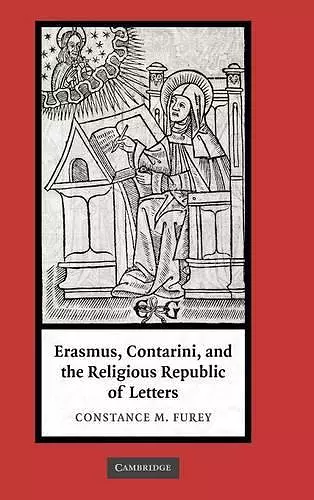Erasmus, Contarini, and the Religious Republic of Letters
Format:Hardback
Publisher:Cambridge University Press
Published:19th Sep '05
Currently unavailable, and unfortunately no date known when it will be back
This hardback is available in another edition too:
- Paperback£30.99(9780521103435)

This 2005 book examines how the religious search for meaning shaped contemporary assumptions about friendship, gender, reading and writing.
By analysing the lives, work, and correspondence of Erasmus, Thomas More, Margaret More Roper, Reginald Pole, Gasparo Contarini, and Vittoria Colonna, this 2005 book demonstrates how these Catholic men and women of letters created a distinctive kind of religious community rooted in friendship and spiritualised scholarship.Though the paradigm of modernist progression has been challenged on many fronts, Erasmus and other sixteenth-century figures are still commonly viewed as people who led the transition from a religious Middle Ages to a more godless modern era. Erasmus, Contarini and the Religious Republic of Letters, published in 2005, complicates this transition by analysing a unique realm of spiritualised scholarship that cannot fit easily into any conventional intellectual chronology. By analysing the lives, work, and correspondence of Erasmus, Thomas More, Margaret More Roper, Reginald Pole, Gasparo Contarini, and Vittoria Colonna, this book demonstrates how these Catholic men and women of letters created a distinctive kind of religious community rooted in friendship and spiritualised scholarship. By spanning the too frequently respected gap between humanist reformers in northern and southern Europe, the book uncovers a widespread, if previously less visible, network that exhibited concerns we still grapple with today.
Review of the hardback: 'Constance Furey's Erasmus, Contarini, and the Religious Republic of Letters brilliantly brings together the study of intellectual community, friendship, and religion. The book makes an important contribution to studies of early modern religious and intellectual life. Perhaps even more significant will be the model it sets for religious studies scholars in reconceiving scholarship as practice and for historians of the public sphere in recognizing the crucial role religion has played and continues to play within it.' Amy Hollywood, Harvard University, The Divinity School
Review of the hardback: 'Furey … is to be congratulated for her brevity and clarity, and her audience of intellectual and religious historians should benefit from reading this book.' Sixteenth Century Journal
ISBN: 9780521849876
Dimensions: 229mm x 152mm x 19mm
Weight: 570g
270 pages